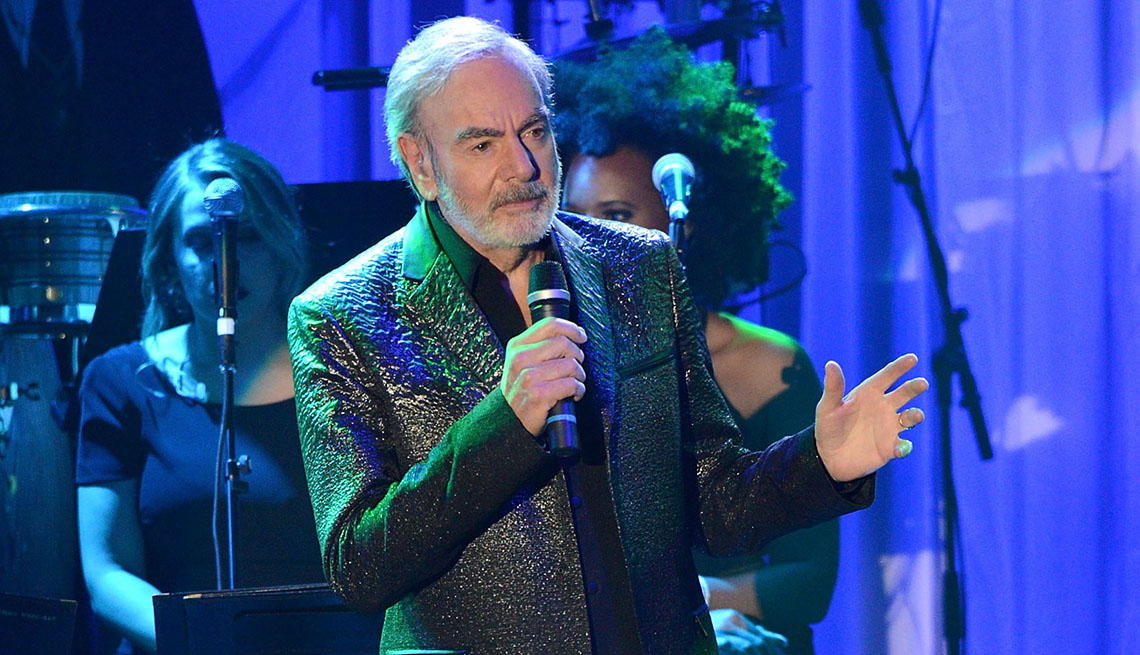Staying Fit
Neil Diamond, who turns 77 Wednesday and gets a lifetime achievement award at the Grammy Awards on Sunday, announced Monday that he has Parkinson's disease and has canceled his 50th anniversary tour. He said he will no longer tour, but that he'll continue recording. Parkinson's disease is a brain disorder that affects movement. The illness also has struck Michael J. Fox, Robin Williams, Muhammad Ali and Johnny Cash.
Unlike Linda Ronstadt, 71, who quit singing after a Parkinson’s diagnosis, Diamond will continue his singing career despite his "great reluctance and disappointment" for canceling tour dates and inconveniencing fans, he wrote on his website. He said he intends to "remain active in writing, recording and other projects for a long time to come."


AARP Membership— $12 for your first year when you sign up for Automatic Renewal
Get instant access to members-only products and hundreds of discounts, a free second membership, and a subscription to AARP the Magazine.
Characteristically chipper and witty, Diamond told his fans: “This ride has been 'so good, so good, so good, thanks to you,'" alluding to lyrics in “Sweet Caroline,” which he wrote against a short deadline at his first recording session in the early 1960s. He led a Times Square crowd in singing the tune last New Year’s Eve in New York.
Over the decades, Diamond has scored 53 songs on the Billboard pop singles chart, with 13 reaching the Top 10 and three hitting No. 1 (“You Don’t Bring Me Flowers” with Barbra Streisand, “Cracklin’ Rosie” and “Song Sung Blue”). Even without touring, he evidently feels the same as he did in 2014, when he ruled out retirement. “I think it would be horrid for me. Stopping would be very difficult,” he said. “It’s part of who I am.”
“I’m rooting for you Neil!” tweeted Barry Manilow. “Fight on from another Brooklyn boy!” Brian Wilson tweeted. “So much respect for #NeilDiamond. Feel honored to have seen him live. Wishing him strength and good wishes.”


































































